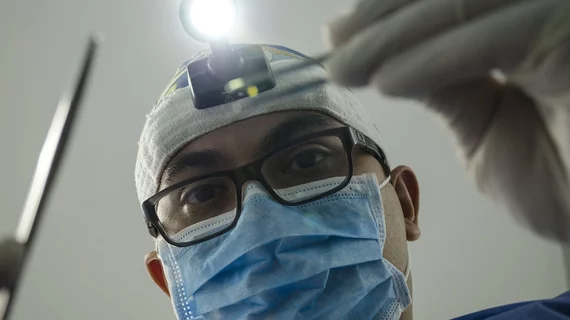Industry Watcher’s Digest
Buzzworthy developments of the past few days.
- AI will never replace physicians. How many times have we heard that? The assurance is often followed by some variation of “It will assist, not supersede.” Or “Doctors who use AI will supplant those who don’t.” But some experts see room for a little more nuance. Take Bruce Darrow, MD, PhD. The Mount Sinai Health System CMIO uses a mild skin rash as an example. “If I told you the accuracy of [a dermatology app] was on par with what a doctor would tell you in five to 10 days, say 95% or even better accuracy, it would be no contest,” Darrow tells HIMSS Media’s Healthcare IT News. “Every patient would choose the app.” Initially, anyway. If the app recommends treating with this or that OTC cream and the rash clears up, you can cancel your doctor appointment. In this way, sorry doc, but you’ve been de facto “replaced”—albeit briefly and no more completely than has been the case for years with patients diagnosing and treating themselves with help from far less reliable “Dr. Google.” Regardless, Darrow predicts, “doctors will still be in the picture for a long time to come.”
- The need for a doctor in the loop is unlikely to ever vanish even with generative AI models that can take on impossibly intricate clinical challenges. Like ingesting and analyzing mountains of data to find clues for as-yet asymptomatic cancers that no human could have suspected. The technology isn’t there yet, as an article in The Wall Street Journal reports. But one iteration, built on OpenAI’s GPT-4o technology, is showing promise to help with cancer screening based on risk patterns too deeply buried for oncology specialists to get their heads around. The model was developed by Color Health and is undergoing drug-level testing at USCF’s Helen Diller Family Comprehensive Cancer Center. Article here.
- People tend to place considerably more trust in their own doctors than in the healthcare system as a whole. Several well-designed surveys have confirmed the gap. Since healthcare AI lives or dies by how confidently it’s trusted, physicians could help by sprinkling a bit of their trust-me dust on algorithms they know to be sharp. That’s a paraphrase of a point made by Greg Samios, president and CEO of clinical effectiveness at Wolters Kluwer Health, in a piece published by Fast Company. “Before using generative AI in their own practice, nine out of 10 physicians say they would need to know the material it sourced from was created by doctors and medical experts,” Samios writes. “By communicating their high standards for using generative AI at the point of care, physicians can help earn patient trust in this new technology.” Read the rest.
- AI is healthcare’s wildest wild card. That’s because, over time, the technology could spectacularly improve care delivery—or quietly fade away unmourned after failing to live up to its hype, exacerbating inequities and/or making the cost of care exorbitant. “That’s the nature of a wild card—we just don’t know,” explains Axios policy reporter Caitlin Owens. “[D]ecisions being made today could make a big impact on the ultimate success or failure of some of the most exciting prospects.”
- Microsoft has launched a cybersecurity effort to help cash-strapped rural hospitals guard against ransomware attacks. The work will run parallel to the company’s philanthropic AI for Health program. It’ll discount security products by as much as 75% for smaller hospitals while supplying larger ones with advanced cybersecurity software for one year, gratis. Details.
- More than 10% of remote job openings in healthcare involve AI or VR activities. That includes 2.6% of open positions in mental healthcare and a three-way tie, at 1.6%, in administration, data science and research. The findings are from the adult-education operation National University based in San Diego. More findings and info on methodology here.
- Very close to all organizations—99.7%—are using AI or planning to. So found researchers who surveyed 1,500+ C-level executives from around the world employing at least 1,000 workers. Healthcare was part of the mix. Conducted by Pure Storage with Vanson Bourn, the study further showed 4 in 10 respondents developing an “AI-first” strategy in which AI is considered for every new use case. Results summary here.
- A world leader considers AI an ‘exciting and fearsome’ tool. The international influencer is Pope Francis, head of the approximately 1.4 billion-member Catholic Church. Speaking at last week’s G7 Summit, Francis said AI must be used for the good of people and for building a better tomorrow, the National Catholic Register reports. “It is up to everyone to make good use of [AI technology],” the Pope added, “but the onus is on politics to create the conditions for such good use to be possible and fruitful.”
- Just for a minute, forget AI in healthcare—and make a scratch pad in your heart for AI in cat care. The latter is a thing in Japan, where a popular AI-powered smartphone app called CatsMe! alerts pet “parents” when kitty seems to be feeling pain. The info “cuts down on the guesswork of when it is necessary to embark on a stressful trip to the veterinarian,” reports Reuters, which notes that feline and canine companions now outnumber children under age 15 in the Land of the Rising Sun.
- Recent research newsmakers:
- Mass General Brigham: Artificial intelligence accurately screens heart failure patients for clinical trial eligibility
- Mount Sinai Health: AI can help doctors make better decisions and save lives
- UT Southwestern Medical Center: ChatGPT enhances readability of cancer information for patients (Hat tip: Medscape)
- Mass General Brigham: Artificial intelligence accurately screens heart failure patients for clinical trial eligibility
- AI funding news of note:

